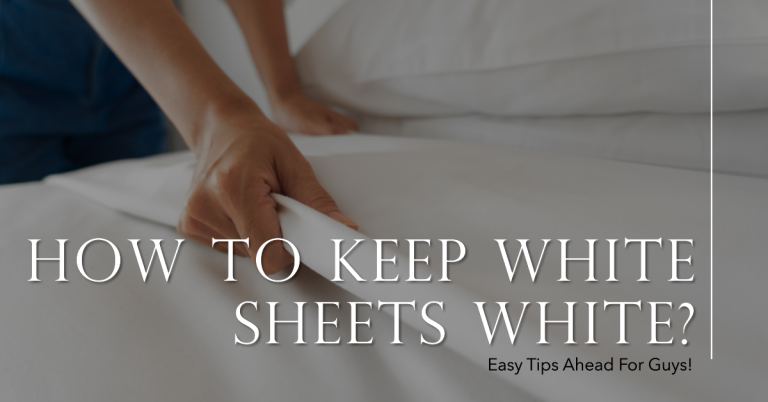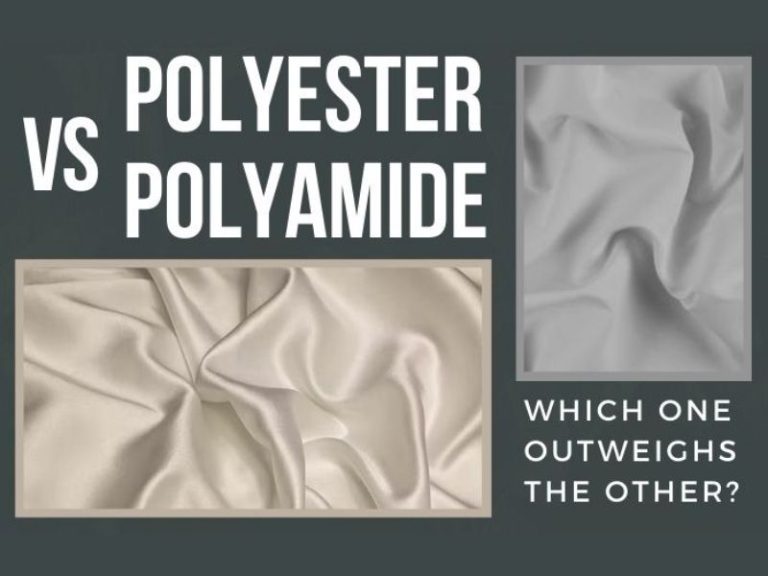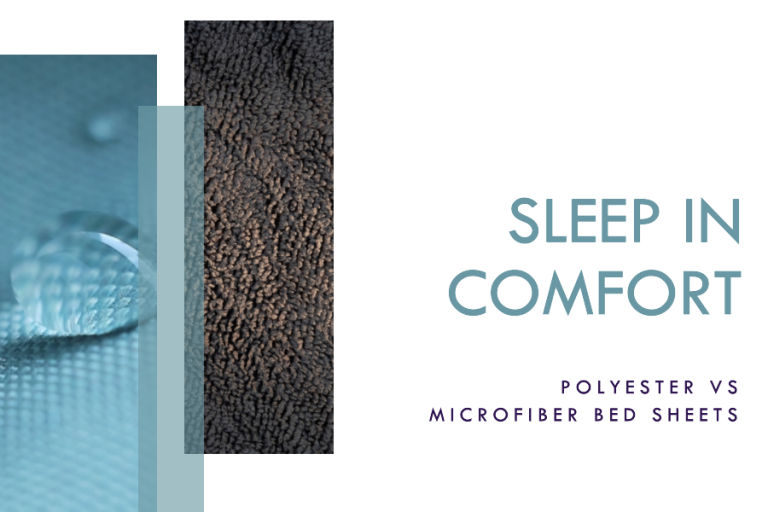Imagine spending many hours doing laundry every week; you want to save time by washing clothes. Since you try to organize clothes and bedding, it is more convenient to put everything in the machine.
Knowing which things may be safely cleaned together is essential for controlling laundry tasks. However, there is a big question of whether it is suitable if you can wash sheets and towels together. This article will guide you through answering how can you wash bed sheets with towels.
Can You Wash Bed Linens And Towels Together?
No, you don’t wash bed linens and towels together. Instead, dividing your linens into different laundry loads, such as sheets in one and towels in another, achieves a more effective clean. This approach also minimizes wear on both your linens and your washing machine, contributing to a notably longer lifespan for your linens.
Moreover, mixing linens with a small amount of clothing and detergent would only prevent the items from being washed and dried correctly. The linens would make it hard for the garments to move around, preventing a thorough cleaning.
Furthermore, all this mixing would be done to rinse the clothes without removing the dirt and stains, perhaps exposing you to germs that other things had absorbed. These compounds on your bed coverings and the surface exposed to your skin for lengthy periods of time might cause rashes or allergic reactions.
Why You Shouldn’t Wash Your Sheets And Towels Together
Why should you not implement the idea of washing towels and bedding together? Linens and towelings should be done separately for the following reason:
They don’t weigh the same
By “weight” we mean the thickness of the products. Their thickness may influence how long it takes for them to dry in the dryer. Items with such fabric weight disparities should be washed or dried at different times.
Bedding sheets have light textiles such as linen, cotton, etc. All the evidence indicates that lighter-weight materials, like bed coverings, will dry more quickly than thicker towels.
Meanwhile, towels absorb moisture. As a result, they are built with more durable and absorbent materials. Towel surfaces often contain little feathery rings when sifted through. The projecting loops absorb excess moisture.
The difference in materials between the two items causes either the towels not to dry properly (which might lead to mold or mildew growth) or the sheets to be over-dried, causing damage and limiting their lifetime.
In addition, towels are built to be durable and can withstand a lot of wear and tear. The time for sheets to dry is thirty minutes or less, but drying towels might take up to an hour, depending on how well your washer spins away the leftover water.
When you wash them together, it is more likely that the washing machine will throw your clothing around while running the wash cycle, which increases the likelihood that your bedsheets will get torn.
Towels can get trapped inside the sheets
It would be a dreadful disaster to find that your garments had been tangled and balled up within the sheets while they were being washed or dried. The sheer design of the fitted sheets leads other objects to ball up inside them.
This is because the fitted sheets have garters on each corner to help them fit properly on the bed. Because of its design, other clothing often becomes trapped within fitted sheets and seems messy.
In addition, due to the design of the bedding covers, the clothes will get entangled among the sheets, resulting in neither of the items being cleaned nor dried to their full potential. What is caught inside a sheet will not be cleaned as thoroughly and will not dry properly in the dryer if it is put in there in the first place.
Even if you are merely drying sheets in the dryer, you need to pause it halfway through the cycle and remove the pillowcases and protectors from the balled-up fitted sheet. The next step is to stop the dryer, remove everything from it, and then fluff the items. The use of towels further exacerbates the balling-up issue. Because of this, washing these goods in separate loads is preferable.
Made out of different materials
Towels are often constructed of cotton terry cloth, which means they have a higher propensity to generate lint. Although this may not seem like a significant issue at first glance, it is essential to note that this is the case. Because of the difference in materials, your sheets run the risk of being coated in lint, which will alter both their look and texture and shorten their lifespan.
If you do not separate your towels from the rest of your laundry, you run the risk of having lint spread over your other garments. When you wash your sheets and towels together in the washing machine, some of the lint from the towels may stick to the sheets.
It will be annoying if you have just finished drying your sheets, only to find that they are covered with lint when you take them out to use them.
Require different temperatures
Many people believe that if they wash their bedding and towels at a lower temperature, they are doing a better job of cleaning them, and at the same time, they are helping the environment. Even while washing at a lower temperature is preferable for the domain from the perspective of the amount of energy used, there are other considerations to consider.
Because towels are regularly wet and come into touch with dead skin cells, it is crucial to give them a thorough washing in hot water to eliminate any germs that may be present after usage.
In addition, if you wash them in a cycle at a higher temperature, you will have to wash them less often. Your clothes will still have germs even after being washed at a reduced temperature.
The germs linger on the garment, which implies that the odor will develop more rapidly. You must wipe out every single one before you can begin again. Besides, it is okay to wash linens in high heat. If you choose to do so, the more delicate cloth may suffer.
It would be best to wash towels and sheets separately since they are washed at different temperatures. Wash them in other orders will create less wear and tear on the items and eliminate all the bacteria, germs, and fungi that may accumulate on towels and sheets.
Conclusion
The answer to the question of whether or not you should wash your sheets and towels together is, in a nutshell, that it is not suggested. When washed combined, they provide ineffective cleaning results. So, they need a variety of washing and drying cycles. When you wash your sheets with your towels, the lint from your towels might trap on your sheets and make them annoyed for cleaning after.
There is some tips to wash linens and towels:
FAQs
You should wash your bedding once every two weeks at the absolute least. However, if you have been unwell, you should wash your bedding as soon as you feel better to prevent the spread of any illness.
When washing them, try to avoid using strong detergents whenever possible since you replace them regularly.
The materials can shrink more if they are washed in hot water and dried at high temperatures. It is recommended that the ideal temperature of 60°C be used.




